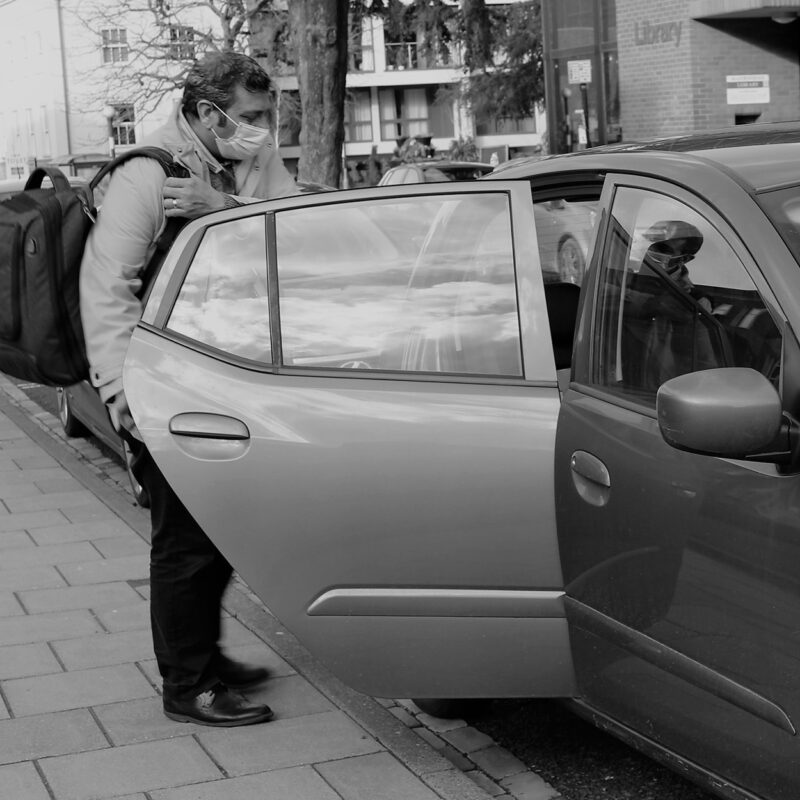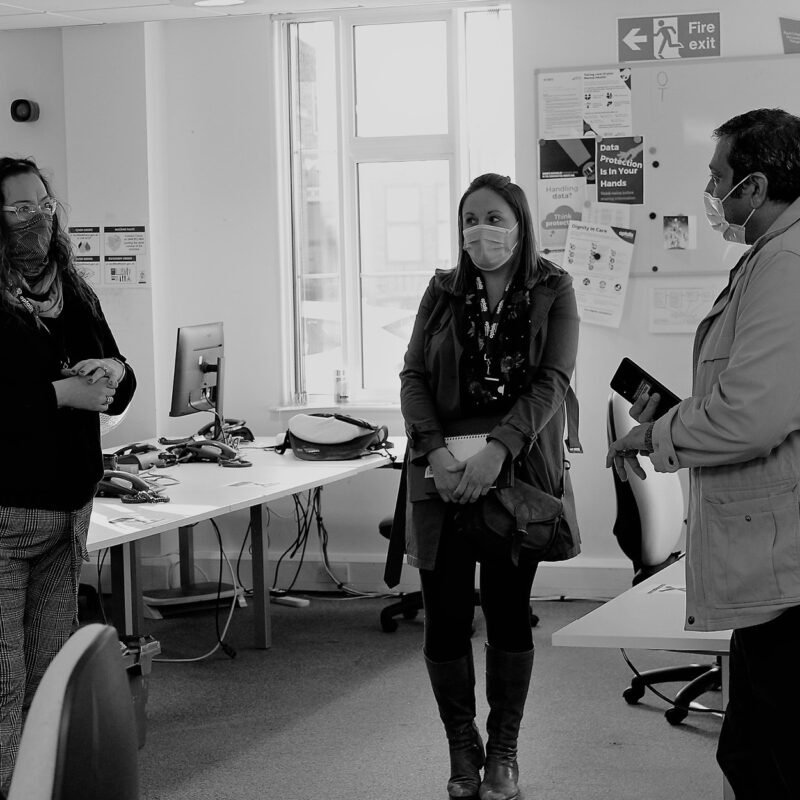The Hospital Team - Playing a Vital Role in COVID-19 Response
11 March 2021
The Hospital Team play a pivotal part in supporting vulnerable residents to safely leave hospital. We spoke with Keyur Patel, Hospital Team Service Manager, and Kamal Chunilal, Senior Practitioner, to get a better understanding of the team’s role and how the Coronavirus pandemic has impacted the vital work they do.
A patient will be referred to us upon admission to hospital, if they are identified as needing our help. We can work with anyone aged 18 or over, living in the Royal Borough of Windsor and Maidenhead. However, the majority of people we help are frail and elderly. Around 30-40% of the people we work with will be known to the team; meaning most of the people we see are new referrals to our service.
Safe, timely and supportive discharges
This small social services team forms part of the Physical Disabilities and Older People Service. The team of 10, consists of social workers, social care practitioners, occupational therapists and an occupational therapy assistant. Our role is to enable community support and make arrangements for any care services a person may need, in order to leave a hospital setting in a safe and timely way.
Working in partnership with our colleagues in Health
We work very closely with our colleagues in health to facilitate a person’s discharge. Prior to the pandemic our social workers had a presence in Wexham Park and Frimley Park Hospitals, as well as Upton and St Marks Community Hospitals.
This has served us well, during the pandemic, because we had already laid the foundations for good working relationships. Our teams have been able to maintain these links with the use of technology. For example, Keyur and Kamal attend a daily virtual call organised by the Discharge Lead at Wexham Park Hospital. This multi-disciplinary meeting involves professionals responsible for coordinating health and care services, who come together to discuss new cases and support discharge planning.


A significant and challenging workload
We have experienced a significant increase in caseload, particularly during the second wave. The number of referrals we have received have more than doubled, from an average of 20-25 referrals a week to over 50 a week.
It is no secret that hospitals are under immense pressure at the moment, our role has been to help alleviate this pressure, by supporting the safe and prompt discharge of those people who no longer need to be in a hospital.
The principles and duties, as set out by The Care Act, ensure a smooth a timely discharge process. Ordinarily we would work within a 72 hour timeframe. During the crisis, we have needed to facilitate discharges within a 48 hour period.
Presently we cannot fully assess the patient’s care and support needs before they leave hospital. Our initial focus is on helping people regain stability and control in their life, before we start to plan long term solutions. We use information from the medical, nursing and OT team, to make a decision on when it is a safe time to discharge the patient.
For those patients who cannot be discharged to their own home and require nursing or residential care, an interim placement will be arranged. At this point we work closely with our in-house Care Brokerage Team to find a suitable rehabilitation service or care home.


“Our initial focus is on helping people regain stability and control in their life, before we start to plan long term solutions.”
Understanding and listening to the people we support
Once the patient has been discharged, long term assessment and care planning is carried out by our team. This includes understanding in more detail what is important to them, how they want to live independently and what community support they can access. We look at what can be done to improve health, well-being and quality of life.
Our Occupational Therapists will also carry at an assessment with the person at home. They will check the person has the right equipment or aids to promote independence and well-being and prevent a readmission to hospital.
The Short Term Support and Rehabilitation service may also step in at this point, to aid the person’s recovery. The team provide intensive support for a short period to help the person regain independence.
For people in interim placements, we will work with them to ensure that they are able to move as soon as possible to their long term care home.
During this second wave, the Government has agreed to fully fund the cost of health and social care support packages upon discharge for up to 6 weeks. This has come as a welcome relief to people and their families, and in some cases, gives us space to work together to plan for their long term care needs.


Our evolving approach
We have not been able to carry out as many face-to-face visits. Care homes and nursing homes are currently not allowing visits as a measure to protect the most vulnerable from the virus. We try to conduct most of our work over the phone, via email or video call. Reserving visits for when it is absolutely necessary, for example, if the case is complex or there is a safeguarding concern or a need to carry out a mental capacity assessment.
An advantage of our adapting approach, has been the way we involve families. We have always included families in decision-making, but the use of video calling, means we can now have meetings involving the person, their family and all professionals. Even if the relatives live a long distance away. Communication has actually improved, and this is something we plan to continue beyond the pandemic.
Finally a word from Pauline D’Cunha, Head of Physical Disabilities and Older People Team
“I am extremely proud of the Hospital Team. The team are working under constant pressure at the moment. They still manage to do a brilliant job, whilst working at pace and with an increased demand on the service. It is their immense hard work and commitment, which has enabled so many people to leave hospital and return home safely and get back to living the way they wish.”
Previous article

Community development in the face of the pandemic.
Nighat Ellahi, talked to us about how community development has changed in the face of the pandemic.
